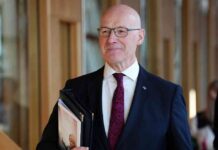Researchers from the Institute for Fiscal Studies (IFS) have recently highlighted the uncertainty surrounding the impact of the SNP tax policy on government revenues in Scotland. The IFS experts conducted an analysis of research by HMRC, which focused on the tax policy changes implemented by the Scottish Government in 2018.
The findings of the study revealed that it was challenging to determine whether the higher taxes on higher earners in Scotland have led to an increase or a decrease in government revenues. The two UK Government studies examined by the IFS regarding the 2018-19 tax changes were inconclusive. Additionally, the researchers pointed out that the costs incurred by the Scottish Government due to higher taxes may have exceeded the estimates provided by the Scottish Fiscal Commission.
Despite the lack of definitive conclusions, the IFS study indicated that the costs associated with increasing taxes on higher earners in Scotland might have been larger than initially assumed. The researchers also noted that previous increases in Scotland’s top rate of income tax could have potentially reduced revenues instead of increasing them, as suggested by the SFC’s assumptions.
Moreover, the report highlighted a more recent HMRC study, which found that internal migration from other parts of the UK to Scotland had increased during the period of higher taxes in Scotland. This trend was not exclusive to Scotland, as Wales and certain regions in England also experienced similar patterns of migration in response to tax policies.
The evidence presented by the IFS study emphasized the significant impact of tax rates on individual behavior, particularly among high-income individuals who contribute a substantial portion of overall tax revenue. The research suggested that increases in the top rate of tax may not necessarily lead to revenue growth and could even result in a reduction in revenue.
In light of the uncertainties surrounding the impact of tax policies on government revenues, the IFS recommended a pause on any future tax increases in Scotland. The Finance Secretary, Shona Robison, defended the Scottish Government’s tax policies, stating that they were based on evidence and aimed at raising additional revenue. She cited the estimates provided by the SFC, indicating that the income tax policy choices made by the Scottish Government were projected to generate an additional £1.5 billion in 2024-25 compared to aligning with UK Government policy.
Robison emphasized that Scotland’s tax base was growing steadily, with data showing faster earnings and tax per head growth compared to the rest of the UK. The HMRC research also supported the notion that Scotland remained an attractive destination for individuals to live and work, with more taxpayers choosing Scotland as their home than leaving in recent years.
Overall, the IFS study shed light on the complexities and uncertainties surrounding the impact of tax policies on government revenues in Scotland, urging caution in implementing further tax increases until more conclusive evidence is available. The ongoing debate highlights the need for comprehensive research and analysis to inform effective policy decisions for the future.












